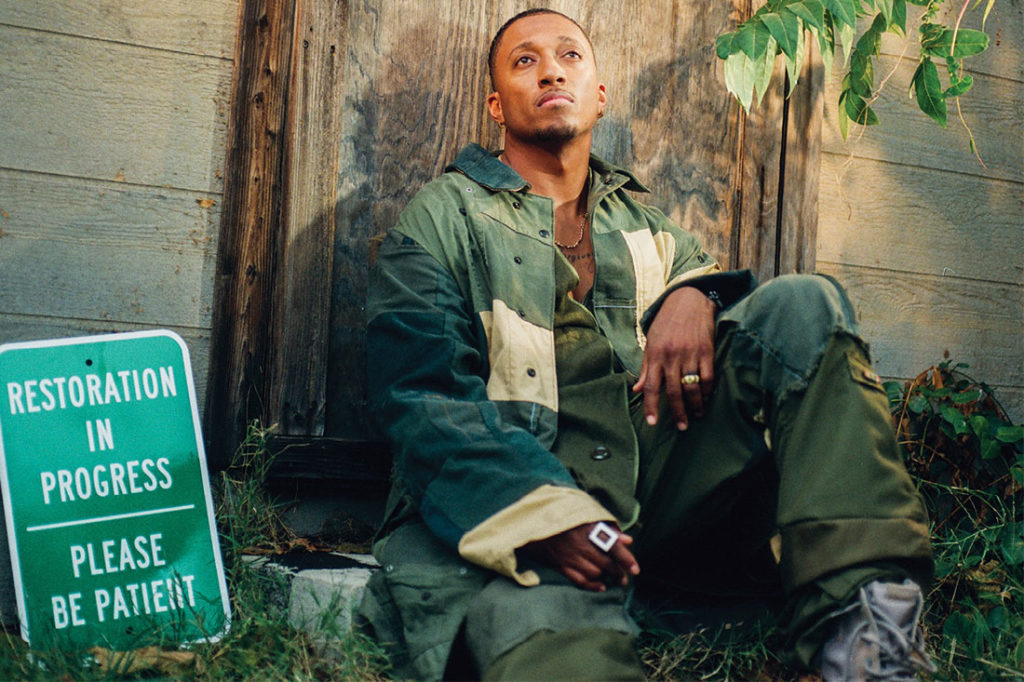It appeared that Lecrae Moore was living a full life.
By 2019, Lecrae, as the Christian hip-hop artist is known professionally, owned three Grammy Awards, three BET Awards and a basketful of Dove Awards (the Christian equivalent of a Grammy). Reach Records, a label he started with his friend Ben Washer, proved successful in the Christian hip-hop movement, which he helped birth. His 2014 album Anomaly was the first-ever Christian hip-hop album to reach No. 1 on the Billboard 200 charts, after which he signed with Columbia Records to further his reach. His book, Unashamed, showed up on the New York Times best-seller list. NBA star Stephen Curry often invited him to speak to the Golden State Warriors.
The massive crowds before which he performed had no way of knowing what he was going through.
“I would go out there and jump around, go through the motions, shake hands and smile,” he says. “Then I’d go back and crawl in my bunk and die.”
Mental illness doesn’t pick favorites. Clinical depression, anxiety, overwork and sleep deprivation lurked. One day on tour, they launched an all-out assault. He woke up with what he describes as a dark cloud over his head. It would be months before it dissipated, but he had nine more days left to perform for thousands. To him, it was like putting on a mask and playing a character for the audience.
“It was like I was a zombie,” he says. “I was there, but I wasn’t there. It was like I was having an out-of-body experience. I had no real function or sense of reality. It was a really dark place.”
The normally gregarious and outgoing Lecrae turned inward. Instead of being the life of the party, he sat quietly in the corner.
“The depression piece was pretty terrible, but it wasn’t as debilitating as the acute anxiety. The anxiety was just horrendous. I couldn’t even leave the house, it was crippling,” Lecrae says. “That was the lowest. It was like I just wanted to die.”
* * *
Lecrae was born and raised in Houston, but he moved a lot, landing in Denver, San Diego, Dallas, Memphis and most recently Atlanta. He struggled as a teenager, getting involved with drugs, petty theft and a local gang. Through the persistence of his mother and grandmother, he found hope through a local church, where he met his future wife, Darragh. It became a turning point.
Lecrae went on to attend the University of North Texas, where he met Washer. They started working with kids at a local juvenile detention center. Lecrae, then an unknown, would perform his music. The kids’ reactions signaled something important. But major labels in the early 2000s had no interest in Christian hip-hop. If the duo were going to get the music out into the world, they would have to do it themselves. In 2004, Reach Records was born, and its artists began performing at churches around the world. Almost two decades years later, it remains a respected name in both Christian hip-hop and the mainstream music industry.
“I saw him being able to take the art form of rap and sanctify it with truth and yet with relevancy for a generation that was tuned into it,” says Tony Evans, a Dallas pastor and Lecrae’s early mentor. “Even though I wasn’t into the genre for myself, I certainly could see its impact for the next generation.”
After being featured on a BET Hip Hop Awards Cypher in 2011 and working with producer Don Cannon on a mixtape, Church Clothes (which was downloaded more than 100,000 times in 48 hours) things moved quickly for Lecrae. Soon, he began working with big names, such as Big K.R.I.T, Paul Wall, Waka Flocka Flame, Ty Dolla Sign and John Legend.
On top of the music, he remained committed to making a difference in the lives of others. On the day his Anomaly album was released, Lecrae was privately meeting at a coffee shop to discuss opening a Christian elementary school in Atlanta.
It was during the tour supporting Anomaly that Lecrae had a breakdown. Too often these stories end with the entrepreneur or artist crashing and burning. Too often, we’re talking about someone’s second act after they’re forced to sell their first company, get divorced or check into rehab. For Lecrae, faith, community, vulnerability and rest proved enough.
* * *
“I think sometimes physical presence matters, sometimes you need someone to put their hand on your shoulder and hug you and see you face to face.” says Adam Thomason, Lecrae’s longtime friend.
When Lecrae began confiding in him. Thomason showed up at Lecrae’s door in Atlanta. Lecrae had never met his biological father, so it was difficult to be vulnerable and open with friends like Thomason. When Thomason showed up on his doorstep, it was a welcome, if shocking, sight.
“I had never experienced that level of friendship where someone sees you at your lowest and they’re going to make every effort to be present,” Lecrae says. “I didn’t know what to expect being transparent with my friends.”
Coupled with therapy and a deeper dive into his faith, Lecrae began to turn in the right direction with Thomason’s support. He consumed as many books and videos as he could to figure out how to pull himself out of the pit. The answer, it turned out, wasn’t in doing more hard work, it was in stopping.
“I had always known I was overworking myself, but I didn’t know it had any real consequences. I had a fear of being idle, but I didn’t know it had mental, emotional, and spiritual consequences,” Lecrae says. “The Sabbath was created because we are hard-wired to think we are in control. It’s like God is saying ‘I just want to remind you that you are not in control, so sit down and trust me. The world won’t end if you stop.’ ”
* * *
Lecrae had two choices. No one outside his close friends had any idea he’d gone through this time. He didn’t lose a job, check into rehab, have his marriage fall apart, get arrested, go on a social media rant or any of the typical public breakdowns that plaster the tabloid covers. This battle was, for the most part, a private one. He could have gotten to work on his next album with Columbia and used it to share the same messages he’s been sharing his whole career.
But Lecrae has never been one to do what was expected of him. He’s built a career by reaching people who are in distress. He turned his pain into art that could help people. He got to work on his latest album Restoration; a book, I Am Restored: How I Lost My Religion but Gained My Faith; and a documentary series, The Road to Restoration, filmed by Thomason.
Lecrae left Columbia Records to focus on Restoration, which features John Legend, BJ the Chicago Kid, YK Osiris and Kirk Franklin. It netted him another Grammy nomination and included some of the biggest hits of his career.
“Our scars show wounded people that healing is possible,” Lecrae says. “I wanted to give people hope that God had begun healing my wounds. I may walk with a limp the rest of my life, but there’s some healing that was done that has changed me.”
This article originally appeared in the July/August 2021 issue of SUCCESS magazine.
Photo courtesy of Lecrae Moore










